MID-CAREER FACULTY FELLOWS
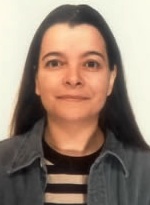
Ana M. Acosta teaches in the Department of English at Brooklyn College. She has published articles on religion, science and Enlightenment. Her book, Reading Genesis in the Long Eighteenth Century: From Milton to Mary Shelley, was published by Ashgate in 2006. In 2010 she coauthored Literature: A World of Writing, a writing handbook and genre anthology published by Pearson/Longman. Currently, she is at work on a book-length project entitled “Stages of Enlightenment,” which examines the intersection of the reli-gious epistemologies of Catholicism and the different Protestant sects in Britain in the Long Eighteenth Century. Professor Acosta received her undergraduate degree from the Universidad de los Andes in Bogotá, Colombia, an M.A. and M.Phil. in Developmental Psychology from Teachers College, Columbia University, and a Ph.D. in Comparative Lite-rature from Columbia University. She has twice been the recipient of a Whiting Fellow-ship, and was chosen in 2006 by the students at Brooklyn College as a Role Model.
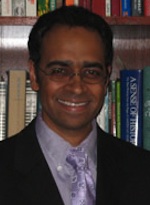
Manu Bhagavan is Associate Professor in the Department of History at Hunter College and the Graduate Center, the City University of New York. He has previously taught at Carleton College, the University of Texas at Austin, and Yale University. He is the recipient of a 2006 American Council of Learned Societies Fellowship, and is the author, editor, or co-editor of 4 books, all published with Oxford University Press. He is currently working on two books: India International, under contract with HarperCollins; and K.M. Munshi: The Life of a Militant Gandhian, under contract with Routledge.
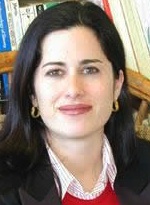
Andrea Khalil is Associate Professor of Comparative Literature at Queens College, CUNY and a member of the graduate faculty in the French Department and the Middle East and Middle Eastern American Center at the CUNY Graduate Center. She earned her MA and PhD from Harvard University where she wrote her doctoral dissertation on North African literature. Her books The Arab Avant-Garde (2003) and North African Cinema in a Global Context (2008) are both related to North African literature, film and culture. From 2001-2002 she served as the Director of the Center for Maghreb Studies in Tunis. Before coming to CUNY she was Assistant Professor of Comparative Literature at The American University in Cairo. She is on the editorial board and is the book review editor for the Journal of North African Studies and is the Program Officer for Tunisia for the American Institute for Maghreb Studies. Her current book is on the culture of the 1988 bread riots in Algeria and the subsequent entry of the FIS (Islamic Salvation Front) into the public sphere during the 1990s.
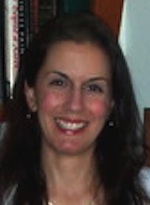
As a medical anthropologist, Dr. Root examines the interface among socio-cultural anthropology, political economy, and global public health in order to advance the social scientific understanding of risk and to inform health and development programs. Using ethnographic and formal qualitative research methods, her work investigates how individuals and communities negotiate diverse risks to wellbeing; establish social networks; navigate illness-related stigmas; and seek treatment amidst larger scale structural vulnerabilities. Robin Root is a graduate of the University of California at Los Angeles (PhD, Anthropology).
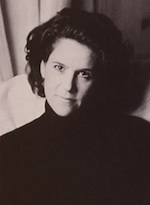
Alisse Waterston is Professor of Anthropology, John Jay College of Criminal Justice, CUNY. Her work focuses on the human consequences of systemic violence and inequality; her areas of specialty include socio-cultural, political-economic and psychological aspects of displacement, diaspora, structural violence, and war. Professor Waterston is an elected member of the Executive Board of the American Anthropological Association (AAA), and serves as Chair of the Board’s Anthropological Communication Committee. She formerly served as Chair of the AAA Committee on the Future of Print and Electronic Publication, as Editor, North American Dialogue, the publication of the Society for the Anthropology of North America, and as Executive Program Chair, 104th Annual Meeting of the AAA (2005).
POSTDOCTORAL FELLOW
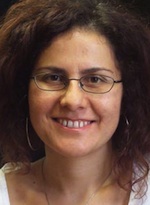
Dr. Berna Zengin Arslan, a sociologist studying Islam and science. Her dissertation, “Pious Science: The Gülen Community and the Making of a Conservative Modernity in Turkey,” examines how the Turkish Islamic Fethullah Gülen community is engaged in reconciling science and modernity with religion. She plans to continue this research by focusing on the challenges for Islamic political discourse presented by issues of homosexuality, reproductive technologies, the headscarf issue, and woman’s role in the family. Zengin Arslan is the author of Women Engineers in Turkey: Gender, Technology, Education and Professional Life (Lambert Academic Publishing, 2010). A member of the sociology department at Bahçe¸sehir University, Istanbul, she has expertise in the sociology of religion, gender studies, and the sociology of contemporary Turkey. She received a Ph.D. in sociology from the University of California, Santa Cruz.
DISSERTATION WRITING FELLOWS
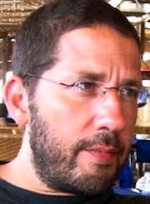
Raja Abillama is a Ph.D. candidate in cultural anthropology at the Graduate Center of the City University of New York, currently finishing his dissertation on the relations between the religious and the secular in Lebanon.
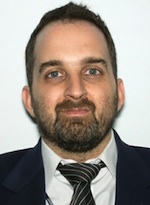
Born and educated in Israel, Ran served in the military as a combat medic, after which he worked and traveled abroad for a few years. After graduating in history from Hunter Collage in NYC, he went to work for the United Nations as a Public Information Officer. During his time at the U.N., Ran began working on his PhD in history at the Graduate Center of the City University of New York. Having left the organization to become a full time academic, he is currently at his fourth year at the program. Ran’s research focuses on modern Japanese and European history, with a specialization in memory and intellectual history. His dissertation deals comparatively with the commemoration and the reaction to the Holocaust in Israel and the Atomic bombing of Hiroshima in Japan. Ran just finished the research portion of his dissertation: spending a year as a research fellow of the Japan Foundation and Hiroshima City University, and as a Social Science Research Council’s IDRF fellow, in Israel and Europe. He is currently writing his dissertation and teaching at Hunter College.


